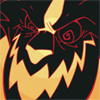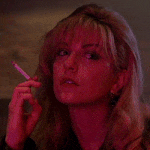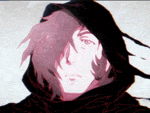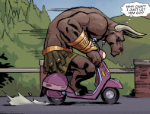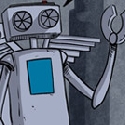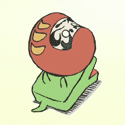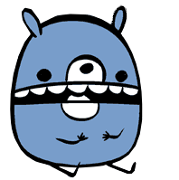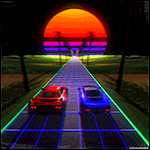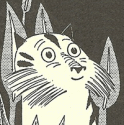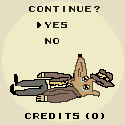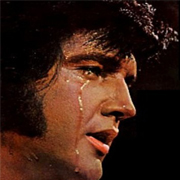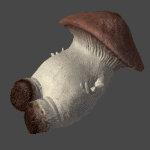|
laplace posted:In some Animation news, Yuasa and Choi finally formed a studio together. Their first work officially with this new studio was the latest episode of Adventure Time, so they have already started off with some darn good work. That is excellent news! I really hope they get more opportunities in the future to show their stuff. I just want Cartoon Network to give them money to make whatever they want and just broadcast them as specials.
|
|
|
|

|
| # ? Apr 29, 2024 14:39 |
|
I just rewatched the last half of the show and it just astonishes me how much Yuasa has developed as a director. He is too drat good.Mercrom posted:I would be so pumped for the finale of this show if Breaking Bad hadn't taught me to manage my expectations. I hope it's pretty good and not generic.
|
|
|
|
Darth Walrus posted:Their videos never work in the UK. I've checked. Hola is a pretty easy and free Chrome extension for changing your country of origin; I've been using it for the WC.
|
|
|
|
Science Saru is an extremely small studio that does animation in flash (check out the credits for Ping Pong, they've been credited every episode since the first; the same animators that worked on Food Chain, even) so don't expect anything big from them in the next, well, ever. When Ping Pong first aired and they showed up in the credits we did some digging and it was pretty obvious it was Choi/Yuasa's studio (http://www.sciencesaru.com/2013/01/). I don't mean to imply doing animation in flash is bad (Bahi does it), they're just explicitly credited for it, which is pretty interesting.
|
|
|
|
aers posted:Science Saru is an extremely small studio that does animation in flash (check out the credits for Ping Pong, they've been credited every episode since the first; the same animators that worked on Food Chain, even) so don't expect anything big from them in the next, well, ever. When Ping Pong first aired and they showed up in the credits we did some digging and it was pretty obvious it was Choi/Yuasa's studio (http://www.sciencesaru.com/2013/01/). Yeah, it is obvious it was Choi/Yuasa's studio, but the news that they finally came out and announced that they'd begin working on things is cool. That being said, Flash isn't like instantly an indicator of bad animation. Choi has mentioned wanting to use it since the Wakfu special (Wakfu is almost entirely animated in Flash, and season 2/the specials look pretty darn good), so I'm not surprised they're using it. Yuasa doesn't do much work himself on computers (He usually drafts and then hands it off to his other animators to do) so I'm more shocked that he himself would move to flash. Still, all big studios have small starts. It is exciting to see Yuasa finally get a "home" of his own.
|
|
|
|
It was a good ending. Holy poo poo that German announcer was hilarious
|
|
|
|
Pretty much an almost perfect ending, the epilogue could have given us more details about the side characters
|
|
|
|
What a great show
|
|
|
|
That intro was really good. The lead up into the OP was great. jesus this show is good
|
|
|
|
I'm glad that Kong got a happy ending.
|
|
|
|
It was a pretty good ending. It was all in the execution, not the writing. That too was all in the execution. The writing was just kinda bad.
|
|
|
|
That was the only way that match could end, really. The whole show was about the characters finding happiness and/or peace by losing, and Smile was the only member of the cast who hadn't had a proper, clean loss yet.
|
|
|
|
That last episode was wonderful It returned! 
|
|
|
|
laplace posted:Yeah, it is obvious it was Choi/Yuasa's studio, but the news that they finally came out and announced that they'd begin working on things is cool. TV Paint is also getting some more play out in Japan. A lot of the drawing/painting tools in it seem more like Yuasa's style than Flash's.
|
|
|
|
Would've liked details on Ota, Sannada, and what happened between Yurie and Kazama but really, really good overall. This show is fantastic, definitely something to revisit in the future. Wenge still got to visit his mom in china I hope.
|
|
|
|
Wonderful ending for a wonderful show. That picture with tsukimoto smiling, man. so beautiful! And him actually having emotions on his face! And holy poo poo that song. so perfect!
|
|
|
|
It's only so often a show pulls me in like this one has, there's just so much charm and love in all if the characters and the ending was perfect. I really hope Funimation decides to release this on Blu-Ray and dub it because I would totally buy this day one. Ping Pong is good.
|
|
|
Beef Waifu posted:Ping Pong is good.
|
|
|
|
|
I'm really glad they nailed the ending. Even though I knew it was coming, the team really took a step above and brought it home. One of the things I really like in Taiyou's manga is how the constructed themes and symbols all have really clear parallels and arcs, and while characters grow, they never deviate from their established themes. Smile has always been about having fun, and reconciling that with how other people play. It is interesting that he managed to both become a better player and understand his opponents and respect them while at the same time understanding that if he had gone all the way he would have destroyed the theme that had come together over the course of the series. By ruthelessly beating Peco in the final match he would have gone back on everything constructed thus far. It's really great that Peco and Smile end up together because, naturally, Peco (The Hero) appears right when Smile is about to really lose himself. Smile did more than just learn about others, but also really neatly linked everyone else's narratives with the core narrative of Peco and Smile's childhood arc and the reason why he played to begin with. The conversation between the Adults was also really good, as it demonstrated that while Joe let the poseidon CEO win because of some form of pity or righteousness, Peco and Smile are above that. The following montage really clearly demonstrated the youth arc as one that "absolved" in some ways the sins of the adults, and why it was so important to the adults' arc as well. It makes Smile's turn as coach even more poignant in that regard. Yuasa's use of visual metaphor did a lot to construct and build on that from the start, and it really helped the source material. The anime really does end up being the "best" version of the story if only for the fact that it only adds relevant content to the Manga that improves its overall reading/viewing experience. Wenge and Kazuma really benefit from these additions, specifically. This show was really great. Yuasa has grown as a director, Choi has grown as an animator, Aymeric as an artist -- It's really clear that this is a culmination piece and sort of a ~graduation thesis~ of sorts for them all. I'm so glad they nailed it. Mercrom posted:It was a pretty good ending. It was all in the execution, not the writing. laplace fucked around with this message at 04:40 on Jun 20, 2014 |
|
|
|
I really loved the finale until the kids' song. I liked the childhood flashbacks a ton, and I get it, but it seemed hokey and halted a lot of my emotion during that part of the episode. From then on, and during it image-wise, it resumed being really great. I like Wenge's ending the best, but I'm glad that everyone is having a blast in the epilogue.
|
|
|
|
Goddamn this was a good show. Every arc came to a satisfying conclusion for me, even those of extremely side characters like the wandering guy.
|
|
|
|
UP AND ADAM posted:I really loved the finale until the kids' song. I liked the childhood flashbacks a ton, and I get it, but it seemed hokey and halted a lot of my emotion during that part of the episode. From then on, and during it image-wise, it resumed being really great. I like Wenge's ending the best, but I'm glad that everyone is having a blast in the epilogue. That's just a matter of taste as the song was like a gut punch for me. Beef Waifu posted:Ping Pong is good.
|
|
|
|
That was so, so good. I loved the song. I thought it fit perfectly.
|
|
|
|
laplace posted:Smile has always been about having fun, and reconciling that with how other people play. It is interesting that he managed to both become a better player and understand his opponents and respect them while at the same time understanding that if he had gone all the way he would have destroyed the theme that had come together over the course of the series. By ruthelessly beating Peco in the final match he would have gone back on everything constructed thus far. It's really great that Peco and Smile end up together because, naturally, Peco (The Hero) appears right when Smile is about to really lose himself.
|
|
|
|
Mercrom posted:Smile still tried to ruthlessly beat Peco though. He obviously had to, otherwise Peco's victory wouldn't have meant anything. But the ending to Smile's arc depended completely on Peco, not Smile. Because the other character's arcs are so heavily dependent on Peco being a near-mythical hero, heroism becomes the biggest theme of the series, even though it the one with the least substance. That's why I would have liked to see Smile win, because that would force the story to confront these issues. But it's not like Peco is intrinsically the "hero", but rather whole "spirit of ping pong"/"Alien from planet ping pong". Peco fades in and out of this character (as we see over the course of his arc) but he always finds himself back in it when he is having fun, and when he is playing the game from a standpoint where he respects other players. Smile was the opposite, ruthlessly destroying everyone like a robot and becoming a machine that couldn't be overcome because that was Smile's way of dealing with things. It's not necessarily Smile's defeat as much as it is Peco saving Smile himself from the Robot he became -- Hence the actual visual metaphor of Smile breaking free, tumbling into a heap, and then emerging more powerful than ever once he, like all of the others, understood the reason why they began to play to begin with. It's not that Peco himself is just some depthless god hero, but rather that he tuned back into what made the game feel good and thus so did the others, who over the course of the show learned to understand their opponents. That's the thing -- As children, the characters played for fun. They played to their most, but for fun and enjoyment. At the start of the series, Peco is playing to Win and Smile is playing for Fun, but they've lost that connection that makes the game valuable to them. It's really thematic then that Peco's arc would involve returning to having fun, and then embodying that to the other characters who would be so close to falling over the ledge of "playing only to win" and "staking one's life on ping pong" that Peco had at the start of the series. I would hardly say that the hero motif is one with little substance. It's entirely constructed and well backed up within the narrative of the show. Peco isn't near-mythical with no reason. We witnessed him get there through hard work and determination and it made sense that he would get to where he was. Having Smile beat him in the end would have just retreaded water -- We already know what happens when someone "plays to win" and gives up on enjoying themselves. Peco existed entirely to prevent that from happening, and that's why him going through that is important. Also, Manga Spoilers, but It's heavily implied in the manga and the movie that Smile, while not "throwing the match", doesn't play the same way he had been because he knows how much it means to not only Peco, but himself and the others, that they play Ping Pong for the reasons that they originally had. I think Yuasa established this pretty hard with the children scene as well.
|
|
|
UP AND ADAM posted:I really loved the finale until the kids' song. I liked the childhood flashbacks a ton, and I get it, but it seemed hokey and halted a lot of my emotion during that part of the episode. From then on, and during it image-wise, it resumed being really great. I like Wenge's ending the best, but I'm glad that everyone is having a blast in the epilogue. Once it got there all I could think of was the GITS 2nd gig's ending, the tachikomas were singing the same song and it's the only place I had heard it. Did anyone else see world trekking guy in Peco's time skip scene? He's in the crowd cheering.
|
|
|
|
|
Kong 
|
|
|
|
laplace posted:But it's not like Peco is intrinsically the "hero", but rather whole "spirit of ping pong"/"Alien from planet ping pong". Peco fades in and out of this character (as we see over the course of his arc) but he always finds himself back in it when he is having fun, and when he is playing the game from a standpoint where he respects other players. Smile was the opposite, ruthlessly destroying everyone like a robot and becoming a machine that couldn't be overcome because that was Smile's way of dealing with things. It's not necessarily Smile's defeat as much as it is Peco saving Smile himself from the Robot he became -- Hence the actual visual metaphor of Smile breaking free, tumbling into a heap, and then emerging more powerful than ever once he, like all of the others, understood the reason why they began to play to begin with. It's not that Peco himself is just some depthless god hero, but rather that he tuned back into what made the game feel good and thus so did the others, who over the course of the show learned to understand their opponents. That's the thing -- As children, the characters played for fun. They played to their most, but for fun and enjoyment. At the start of the series, Peco is playing to Win and Smile is playing for Fun, but they've lost that connection that makes the game valuable to them. It's really thematic then that Peco's arc would involve returning to having fun, and then embodying that to the other characters who would be so close to falling over the ledge of "playing only to win" and "staking one's life on ping pong" that Peco had at the start of the series. I viewed Smile's behavior as a way of trying to get Peco to come back. The ruthlessness being a strategy to that end rather than an end in and of itself. It was sort of his way of saving Peco so Peco in turn would rescue him.
|
|
|
|
I really liked this show a lot. I came in expecting a generic sports anime with a unique art style, but got something else. Ping Pong actually isn't really about ping pong as a sport, it's about youth and growing up and relationships with others that are complex. The characters absolutely made it work for me. One of the best shows so far this year.
|
|
|
|
Ping Pong is p much the Best Anime.
|
|
|
|
omg the pacing of this episode was transcendant. Not bothering with the technicalities of ostensibly the most important match in the series and insisting upon the human element was impressive, even within the precedent of the past 10 episodes. Being so insistent on the "blood tastes like iron" foreshadowing was a really interesting stylistic decision. I think we're supposed to see it as a small earworm that distracted Smile from playing a purely ruthless, robotic match against Smile. Once Smile catches sight of his own blood and reconciles his robot/human duality, he becomes visibly more at comfort with himself, both in the match and the epilogue. Him choosing to work with children professionally and as a hobby was really revealing; he's the type of person who really needs the optimism of youth to keep him from getting lost in the cold, technical world that this anime itself is all about transcending.
|
|
|
|
This is a good rear end show 
|
|
|
|
laplace posted:But it's not like Peco is intrinsically the "hero", but rather whole "spirit of ping pong"/"Alien from planet ping pong". Peco fades in and out of this character (as we see over the course of his arc) but he always finds himself back in it when he is having fun, and when he is playing the game from a standpoint where he respects other players. Smile was the opposite, ruthlessly destroying everyone like a robot and becoming a machine that couldn't be overcome because that was Smile's way of dealing with things. It's not necessarily Smile's defeat as much as it is Peco saving Smile himself from the Robot he became -- Hence the actual visual metaphor of Smile breaking free, tumbling into a heap, and then emerging more powerful than ever once he, like all of the others, understood the reason why they began to play to begin with. It's not that Peco himself is just some depthless god hero, but rather that he tuned back into what made the game feel good and thus so did the others, who over the course of the show learned to understand their opponents. That's the thing -- As children, the characters played for fun. They played to their most, but for fun and enjoyment. At the start of the series, Peco is playing to Win and Smile is playing for Fun, but they've lost that connection that makes the game valuable to them. It's really thematic then that Peco's arc would involve returning to having fun, and then embodying that to the other characters who would be so close to falling over the ledge of "playing only to win" and "staking one's life on ping pong" that Peco had at the start of the series. Heroism is a huge part of sport, but this show's use of it seems very idealistic, and I can't decide if it's admirable and inspirational or a bit naive and escapist. Still, like everything else in the show it's incredibly well done and Peco is an amazing hero whether there's a good reason for him to be or not.
|
|
|
|
I don't think things necessarily need to be meta or make grand overarching statements about things though, is all. Sure, It doesn't say much about heroism as a literary symbol but it doesn't need to because that would be sort of irrelevant and unconstructed? It'd be one thing if the show was about conflicts of heroism and what heroism *is* or what have you, but it isn't. I get what you're saying now, I just don't know if that really applies as criticism because that's more an issue with the content than an active flaw in the writing.
|
|
|
|
laplace posted:I don't think things necessarily need to be meta or make grand overarching statements about things though, is all. Sure, It doesn't say much about heroism as a literary symbol but it doesn't need to because that would be sort of irrelevant and unconstructed? It'd be one thing if the show was about conflicts of heroism and what heroism *is* or what have you, but it isn't. I absolutely did not mean there should have been be any vaguely related meta commentary nonsense. The concepts I'm talking about are all still part of the characters and their arcs. For example, I find it a bit weird for one of two close friends to idolize the other as much as Smile seemed to have done. Wouldn't that relationship be a bit one sided? Would it even be healthy? They don't really show what happens between Smile and Peco at the end, but I would have prefered an ending that showed them becoming more like equals. As a random example, I like how it turned out that Simon and Kamina both admired and inspired each other equally in Gurren Lagann.
|
|
|
|
You're assuming that Peco wasn't also deeply grateful to Smile for pushing his boundaries. Peco has no choice but to face his demons and live up to his opinions of himself and the opinions his best friend has of him.
|
|
|
|
Mercrom posted:I'm not talking metafiction though. Heroism and the parts of it's make-up are as much literary symbols as love is, and I think suddenly including a love triangle as a main plot point would be a significant flaw in the writing. Not that the show did anything resembling that, but I felt the relationship between Smile and Peco maybe could have been expanded upon a little more at the end. You get the sense through the whole series that Smile used to admire Peco so much in the past and the loss of that is crushing, and having Peco revert back and become a role model again is the easiest way that situation could resolve itself. I'm not saying it's bad, I'm just saying it's not exceptional in the writing department. But because of the exceptional execution, seeing Peco meet every past expectation still gives catharsis. Gurren Lagann is not a good example of anime writing but that's sort of a strawman argument. I know what you're saying isn't about metafiction, but I'm saying the literary function of a "hero motif" and "what makes a hero" as a theme are two different things and are not mutually exclusive. It's not poor writing to write about one of them and not the other. I would say it's worse to just throw extra unnecessary stuff into a plot than it is to focus on the elements that are important and supported. That being said: It's not just about Peco "reverting to the hero" nor is it that role the actual end-goal of the character's arcs. It's a function of Peco, sure, but the end release is getting back in touch with why they played Ping Pong in the first place and acknowledging eachother's reasons for that. Peco played Ping Pong originally because It made him feel good, and he could connect with his friends -- mainly Smile, through it. Smile played Ping Pong because he could connect with Peco through it, something that made him genuinely happy. So while Peco's heroism is a core aspect of his character and the overall arc and his relationship with Smile, the interaction isn't ABOUT heroism as much as it is about the function of that heroism in that relationship. You're missing the forest for the symbol trees there. That's not poor writing at all. Also, this: Phobophilia posted:You're assuming that Peco wasn't also deeply grateful to Smile for pushing his boundaries. Peco has no choice but to face his demons and live up to his opinions of himself and the opinions his best friend has of him. laplace fucked around with this message at 15:01 on Jun 21, 2014 |
|
|
|
laplace posted:Gurren Lagann is not a good example of anime writing but that's sort of a strawman argument. laplace posted:I know what you're saying isn't about metafiction, but I'm saying the literary function of a "hero motif" and "what makes a hero" as a theme are two different things and are not mutually exclusive. It's not poor writing to write about one of them and not the other. I would say it's worse to just throw extra unnecessary stuff into a plot than it is to focus on the elements that are important and supported. laplace posted:That being said: It's not just about Peco "reverting to the hero" nor is it that role the actual end-goal of the character's arcs. It's a function of Peco, sure, but the end release is getting back in touch with why they played Ping Pong in the first place and acknowledging eachother's reasons for that. Peco played Ping Pong originally because It made him feel good, and he could connect with his friends -- mainly Smile, through it. Smile played Ping Pong because he could connect with Peco through it, something that made him genuinely happy. So while Peco's heroism is a core aspect of his character and the overall arc and his relationship with Smile, the interaction isn't ABOUT heroism as much as it is about the function of that heroism in that relationship. You're missing the forest for the symbol trees there. That's not poor writing at all. And again, I'm not saying it's bad writing. I'm just writing down my thoughts on the show because of how much I like it. I wouldn't like to call what I'm doing nitpicking, but it is about perfectionism. This would be my favorite TV series of all time if the writing was a bit sharper. Everything else is almost perfect. I'll rewatch the series from the beginning and then I can form a better opinion of it. I'm gonna check out the movie first though.
|
|
|
|
Mercrom posted:It is a good example of anime writing, it's just not an example of good anime writing. I think losing the hero motif would lose a huge aspect to the relationship between Smile and Peco, how they relate, and how Peco has always lead the group and embodied the "spirit" of the ping pong players. Removing the Hero motif really does complicate and leave things (Mainly the value of Peco's arc itself) hanging in the overall arc. Sorry, I didn't mean to come across like I disrespected you, I know we both like the show a lot and such. I'm just going back and forth for the sake of argumentation kind of. Still, I think what I'm trying to say when I was criticizing your viewpoint there was just that I think you are getting caught up in a symbol when it's deliberately the way it is for a reason, specifically when it still functions the way it's intended to. I know you aren't saying it's like the most poorly written thing in the world, I just am trying to make a case for it from the way I read the series. I don't know exactly if it's the best/most well written anime ever, that wasn't really my intention in the argument (I still think I'm more partial to Tatami Galaxy even if I think Ping Pong might be Yuasa's best work as a director?), I just think it's a good example of strong writing overall. Then again, Most of the things that really blew me away and made this season "better" compared to the source material are in Yuasa's additions to the storytelling, mostly in the form of visual metaphor and scene placement. Also yeah, Gurren Lagann is very Anime Writing. laplace fucked around with this message at 12:04 on Jun 22, 2014 |
|
|
|

|
| # ? Apr 29, 2024 14:39 |
|
I don't think I saw this mentioned earlier, but reading the manga I noticed a difference in the way they score games. Quickly googling it says that the manga is the correct way - anyone know why they changed it in the show? E: nevermind I actually read the article more carefully and apparently the standard just changed in-between the two being made. That's kind of weird.
|
|
|


